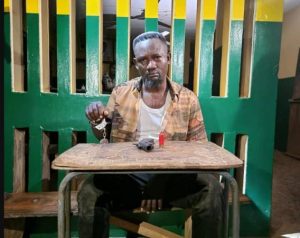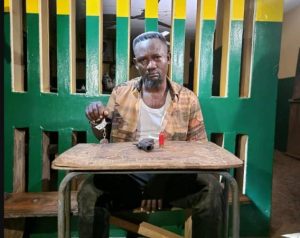Civil rights groups now politically affiliated, altering movement’s purity — Agbakoba
Speaks on activism under military govt and now
•Over 300 groups in Edo to monitor today’s election
By Ishola Balogun
Nigeria’s journey to democracy has been marked by twists and turns, with civil rights activism playing a pivotal role in shaping the country’s political landscape. The tumultuous years of military rule witnessed vociferous civil rights groups, like the Civil Liberty Organisation, CLO, Policy and Legal Advocacy Center, PLAC among others that relentlessly and tirelessly pushed for justice, equality, and accountability under the military era.
To an average Nigerian, all those seem to be dead with the democratically elected governments since little or nothing is heard or seen about their activities. But one of the names synonymous with this struggle is Barrister Olisa Agbakoba, SAN. His voice has been a beacon of hope in the face of oppression, and his unwavering commitment to justice has inspired activists. Despite significant progress of uninterrupted democratic experience, the country still confronts numerous human rights challenges, occasioned by endemic corruption and rising insecurity. In this context, Agbakoba argues that the rights groups are not dead and that the existing rights groups are doing a lot. According to him, “back then, it was soldiers versus the civilians, but today, it is civilians against themselves.”
In an exclusive interview, the former President of the Nigerian Bar Association, shares his insights on the evolution of civil rights activism in Nigeria. With candor and depth, he reflects on the movement’s triumphs and setbacks, highlighting the shifting dynamics of activism in a democratic era. From the streets to the corridors of power, Agbakoba’s narrative offers a nuanced understanding of the complexities in advancing human rights in Nigeria under democratic government.
Is civil rights activism dead under democratic rule?
“They are not dead. The civil rights movement cannot continue to occupy the place it occupied with the return to democracy. There is a big difference in the civil rights movement under military rule and civil rights in the context of democratic rule. The fact is that democratic rule ironically means that it would have achieved its aim but that is not quite true because problems remain. But the characterization of the movement radically changed. We were supplanted by the opposition political party. Whether the opposition political party is doing what they should do or not is a different question.
So, you find out that in my time, it was one general civil rights movement, which is the Civil Liberty Organisation, CLO. Today, we don’t have the general type of civil rights movement which we had under military rule. What you now have is rights specific groups. You find groups on issues like media, prisons, including political issues like voter education, budget, etc. These are single-issue groups, they are not as visible and prominent as we were. We were very strong militarily. From the streets, we would be shouting slogans, because that was what was required of us at that time. Some of the movements like CISLAC are doing a lot of work in the National Assembly. You may not hear of them, they are really doing a lot of work. Groups like that of Clement Nwankwo of the Policy and Legal Advocacy Center, PLAC, are doing a lot on the constitution. There is also CLEEN of the late Innocent Chukwuma whose work is now embraced in Police reform. In our time, there was no way we would agree to serve in government institutions, but now, as part of the reform agenda, we would accept it, because it is not enough to shout from the outside. The shape of the movement has changed, it’s no longer a frontal and politically driven, street protest, barricade type of movement as it were in those days. It is now a completely changed movement. It is not the way you are describing it, they are effective but in a totally different way”.
The Situation Room
“The civil rights movement also plays a big role in monitoring elections through the Situation Room, a coalition of over 300 civil society organizations in the country. We are the ones who give the state of election, no other group does that. Our views about how elections have gone are important and drive the message of whether an election was free and fair. We are now in Edo state, monitoring the election; it is what we say that the media publish. Our views about how elections went are important and drive the message of whether an election was free and fair. My point here is that civil rights groups are no longer the street-combating type of movement. Our roles have changed but I can assure you we are very effective in totally different ways.
Challenges in the democratic era
“I agree that there are more cases of civil rights abuses now than we had during the military era and it was easier to confront rights abuses under the military that what it is today. Confronting rights abuses is more complex in a democratic government. The abuses that you referred to are not as straightforward. It was by far easier to confront rights abuses under the military than it is today. Then, there was a line – soldiers versus civilians. Today, it is civilians versus themselves and many civil rights groups are now politically affiliated, altering the movement’s purity. A lot of civil rights groups themselves may not, in my own personal view today, be called civil rights groups as we knew them. Many are politically affiliated civil rights movements.
Advice for activists
“For those still in the struggle, keep doing what you are doing. Sometimes, it is very frustrating, there are no results, but don’t get tired. The goals of the movement are ever evolving. If you are thinking about banditry today, tomorrow it is kidnapping, and so on. So, the work of the civil right movement is a lot more difficult today than it was under the military government. Civil rights activism is very important to Nigeria’s existence, they must therefore be persistence”.
The post Civil rights groups now politically affiliated, altering movement’s purity — Agbakoba appeared first on Vanguard News.



